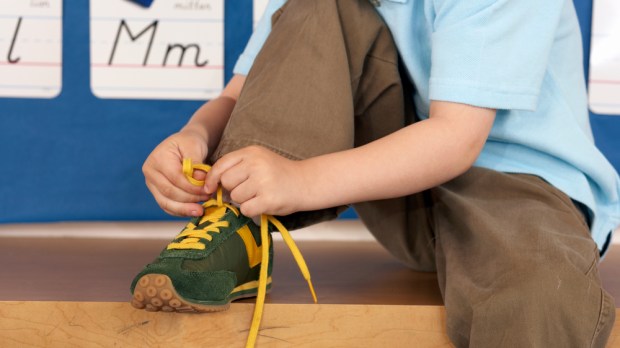“My son is very independent, he chooses his films or books and goes to bed all by himself at night!” proudly announces Adele, mother of 4-year-old Gaspard. And you think of your little 7-year-old who struggles to tie his shoes after gym class …
For over 40 years, discourse on education has considered autonomy a key educational objective and parents struggle to make their children autonomous. It is unlikely that things will change any time soon, so we can expect autonomy to be at the top of the agenda for our millions of modern day children. A quick glance at educational magazines will corroborate that there is no mercy for the non-autonomous! Moreover, the idea seems completely natural to parents: “Our children are faced with a complex world, they need to be able to get by on their own as quickly as possible,” confesses one mother. But what if this idealized autonomy was becoming a cover for individualism?
The autonomous child is a child who is trusted
Just as our hyperactive society fears the dependency of its senior members, the younger ones are warned not to stay in this state for too long. And yet, it is in this bond of interdependence that the mother-child relationship is built. It is this intimate closeness that marks mothering, making those first years a time of security. Tomorrow’s security grows out of today’s dependency—from which the child can only emerge in stages. If we push them through it too quickly, we risk making young people pessimistic and sad.
Why not consider autonomy in terms of the family reality, adjusting to the rhythm of the children, their own needs and abilities? Even if this means lowering some standards and distancing yourself from “official” guidelines: tying their shoes at 7, buying bread at the store down the street at 8 … If your child doesn’t fit the mold, look at all they can do that isn’t in any school manual. Does your son read a story to his sister before bed? Does your daughter have a sense of humor like no one else? Does your child play word games? Does he or she comfort her friends?
Emotional intelligence, a sense of relationship, an ability to participate in family life: there are many signs that our children are growing up at their own pace in the family. They are signs of the breath that God breathes into them, that manifests itself in their uniqueness. Ultimately, it is important to build a relationship of trust and mutual awareness with our children, the only source of authentic autonomy. The shoelaces can wait!
Anne Gavini

Read more:
12 Enjoyable things to do with young adult kids who are back home during the pandemic

